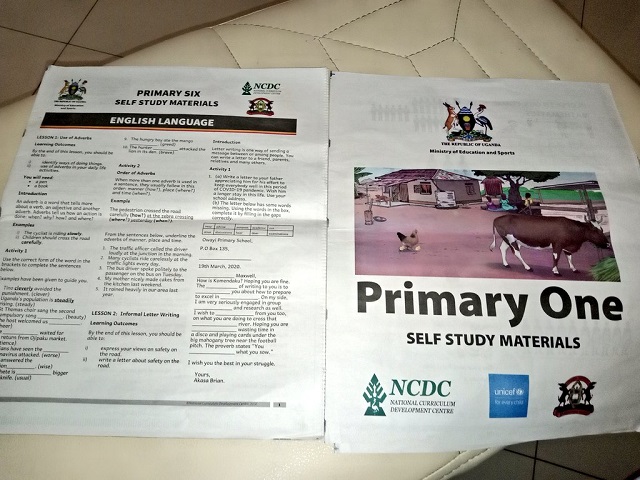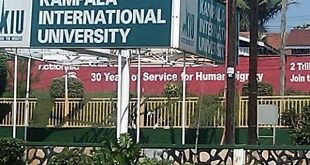
Kampala, Uganda | THE INDEPENDENT | The Ministry of Education and Sports is still guessing on the approach for the distribution of the self-study materials which are being prepared for the homeschooling program.
During the first phase of the program, the distribution of the materials turned out to be an uphill task for the Ministry of Education and local governments. The materials that were printed and distributed by Vision Group at a tune of six billion Shillings failed to reach the targeted learners.
There was confusion due to lack of clear data indicating where the learners could be found which left many learners unable to access the materials despite the government’s claims that the materials were accessed by about six million learners. Due to the confusion and inadequacy, some leaders for instances in Bukomansimbi district rejected the materials.
At that time, the said materials were dropped at the offices of the Resident District Commissioners who in turn distributed them to sub-county chiefs. The sub-county chiefs then handed them over to parish chiefs and then to LC I chairpersons who delivered them to learners in their homes.
But the ministry is now considering a new method so that materials can be effectively distributed. Dr Tony Mukasa Lusambu, the Assistant Commissioner in charge of Basic Education says that this time round, they will use the Ministry of Education structures at the districts. This means that materials will be delivered through the District Education Officers and schools.
However, sources indicated that some members of the education COVID-19 response committee had suggested that they should use data from schools while others insist that this might not help given the fact that some students are not residents in areas where they study from.
In the first phase, the ministry wanted to use data from the Uganda Bureau of Statistics. But they have since established that the UBOS data does not reflect the true picture on the ground. The Ministry of Education had ordered for registration of all learners from their respective homes with the help of local government structures. However, little information on the progress of the activity has been reported.
But Lusambu insists that the ministry is still collecting data from every possible source before a final decision is taken.
Besides the mode of distribution, educationists are concerned about the duration which the ministry will take to ensure that the materials are distributed across the country. Hajji Ali Dago, a lecturer at the Islamic University in Uganda notes that it is hard to imagine that a government which has been struggling with the distribution of masks, can be able to distribute study materials.
“We might end up having some learners getting the material today and their counterparts in other district wait for two or three months,” Dago says.
As candidates in primary and secondary schools are expected to return to school after a six month long and unprecedented holiday, their counterparts in other class will remain home, learning with help of self-study materials and radio and television broadcasted lessons.
The self-study materials are still being developed by the National Curriculum Development Centre. Last week, the curriculum developers were finalizing a phase of editing that began on September 23. However, the ministry is yet to declare the date on which it will be rolling out the program.
******
URN
 The Independent Uganda: You get the Truth we Pay the Price
The Independent Uganda: You get the Truth we Pay the Price


